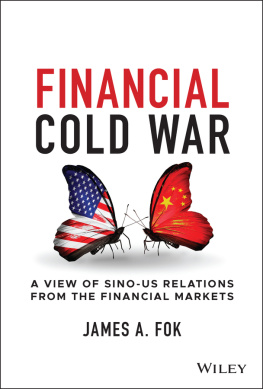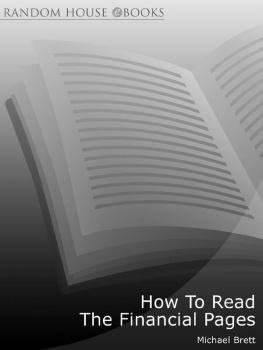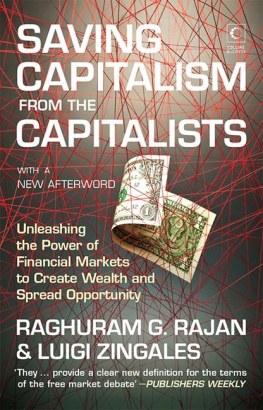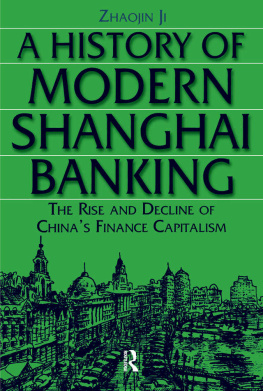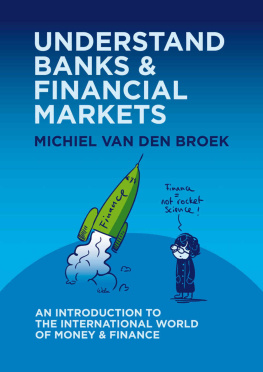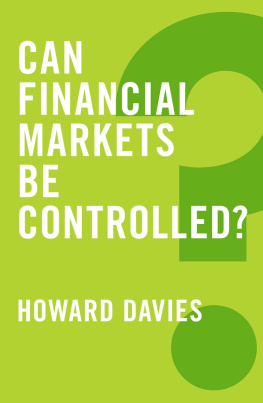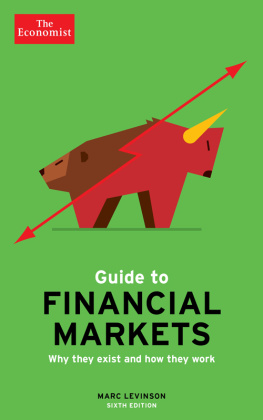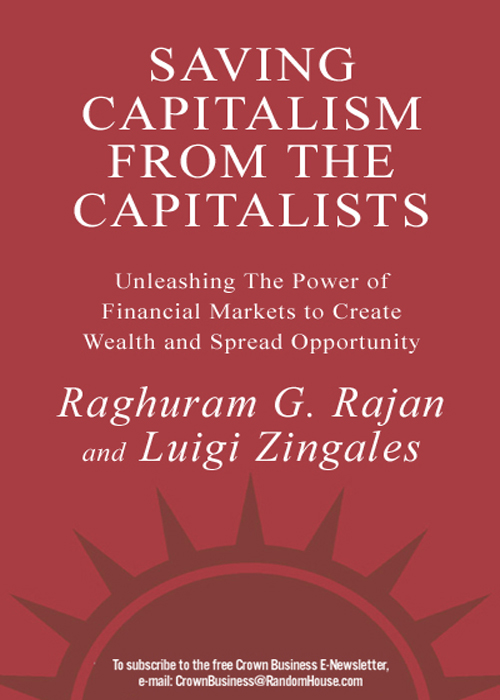
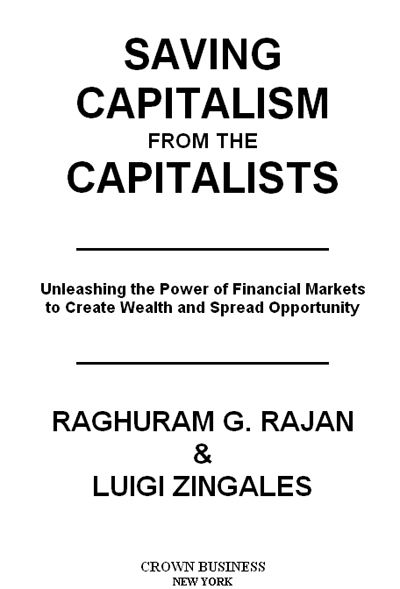
CONTENTS
To our families
PREFACE
I F OUR PUBLISHER had the power to influence current events to promote this book and he did not give a fig for human misery, he could not have done better. Newspapers are full of corporate scandals. The implosion of the Internet bubble has produced the greatest peacetime destruction of paper wealth the world has ever seen. Antimarket protesters have gained strength in country after country. Questions about the viability or the political fragility of the capitalist system, which appeared preposterous when we started this book three years ago, seem reasonable now.
Is unbridled capitalism still the best, or the least bad, economic system? Are reforms needed? And should these reforms go in the direction of fixing the system or of changing it completely? Will the current public disillusionment with free markets outlast the dip in the stock market? Even if the disillusionment is a passing wave, in what form will capitalism survive in the twenty-first century?
Even though our book was conceived and largely written before most of the recent scandals surfaced, it attempts to place them in perspective. Every market boom produces new crooks. And every market bust sets off its witch-hunts. This book aims to see beyond the immediate consequences of market fluctuations to their deeper and more long-lasting effects on the system of free enterprise. Through our focus on financial markets, we seek to identify the fundamental strengths and weaknesses of the capitalist system, not only in its ideal form, but also in its historical realizations.
We base our arguments on a vast academic literature, much of it produced in the last twenty years. But this is not a book aimed at a specialized audience, because we think our message is relevant to the wider public. We eschew the presentation of detailed econometric analysis, not because we do not think it important, but because the flavor of the results can be conveyed equally well through words for the general reader, while the interested can be directed to more detailed sources. This book is also more than simply a survey of a literatureit weaves a broad argument. While we will marshal historical facts, and draw on our own studies, as well as the studies of others, history gives us few natural experiments with which to test all aspects of broad argument. Therefore, at certain junctures, we will try and persuade the reader as much by logic as by the historical authorities and evidence we cite.
The purist may not approve of this approach. Unfortunately, any attempt at integration of different fields, and evidence across time and studies, is usually unsatisfactory to purists, partly because the weights one places on different aspects are pregnant with biases. We would apologize for these were it not for our firm belief that bias is inevitable in all work, and it is competition between biases that generally drives thought ahead.
This has been a shared voyage of discovery in which we have learned much together along the way. We have to acknowledge those who have taught us either directly or indirectly. The modern field of finance has been created during our lifetimes, and we certainly owe an immense intellectual debt to the pioneers, many of whom are still active in research. But we owe a special debt to those who advised us in our early years. In particular, we would like to thank Oliver Hart, Don Lessard, Stewart Myers, John Parsons, Jim Poterba, David Scharfstein, Andrei Shleifer, and Jeremy Stein. We have also benefited tremendously from our colleagues at the University of Chicagos Graduate School of Business, some of whom have been partners in our voyages of intellectual discovery, while others have provided immensely useful friendly criticism. Douglas Diamond, Eugene Fama, Steven Kaplan, Randall Kroszner, Canice Prendergast, Richard Thaler, and Rob Vishny are a few we would like to name, without diminishing the debt we owe the others. Our book also reflects the joint work we have done with others. We owe thanks especially to Abhijit Banerjee, Alexander Dyck, Luigi Guiso, Mitchell Petersen, Paola Sapienza, and Henri Servaes, whose efforts have helped mold our thinking.
Many people read early drafts of the chapters in this book. Heitor Almeida, Oliver Hart, Peter Hogfeldt, Steven Kaplan, Ross Levine, Rajnish Mehra, Canice Prendergast, Radhika Puri, Roberta Romano, Gianni Toniolo, Andrei Shleifer, and Richard Thaler provided very useful comments. Joyce Van Grondelle did an excellent job (as always) of vetting the references and the bibliography, while Adam Cartabiano, Laura Pisani, and Talha Muhammad helped us check figures and track references down.
Barbara Rifkind helped us put together a coherent proposal, and most important, find John Mahaney, our editor. He has been invaluable in getting us to focus our work so that we can address our various intended audiences in an intelligible way. We owe him thanks for many useful suggestions that have vastly improved the book. Shana Wingert, his assistant, patiently helped us manage the logistics of the book-writing process. Sam Peltzman and the Center for Study of the State and the Economy provided encouragement and crucial financial support during the course of this project.
And finally, personal notes:
Raghu:
I hope my parents will finally have a glimpse in this book of what I do for a living. This book reflects in many ways what they taught me, from the history my father used to read aloud when I was a boy to the love of reading my mother tried to inculcate in me. This book would not have been finished were it not for my daughter, Tara, asking repeatedly, Daddy, have you finished your book yet? Tara, I am sorry this book does not need an illustrator, else I would certainly have used you. I owe you and Akhil many weekends that could have been spent in the park or on the beach. And most of all, I thank my wife, Radhika, for all the love and advice she has given over the course of this project.
Luigi:
This book was written during a difficult period of my life. I want to acknowledge all the people who provided moral support throughout: Elizabeth Paparo, Maria Coller, Francesca Cornelli, Mary Doheny, Leonardo Felli, Enrico Piccinin, Carol Rubin, Paola Sapienza, Abbie Smith, Stefano Visentin, Maria Zingales, and Raghu himself, whose patience and understanding went beyond what could be expected from a friend. I am indebted to my parents for the wonderful education they gave me. I dedicate this book to my children, Giuseppe and Gloria, purpose and joy of my life.
Introduction
C APITALISM, or more precisely, the free market system, is the most effective way to organize production and distribution that human beings have found. While free markets, particularly free financial markets, fatten peoples wallets, they have made surprisingly few inroads into their hearts and minds. Financial markets are among the most highly criticized and least understood parts of the capitalist system. The behavior of those involved in recent scandals like the collapse of Enron only solidifies the public conviction that these markets are simply tools for the rich to get richer at the expense of the general public. Yet, as we argue, healthy and competitive financial markets are an extraordinarily effective tool in spreading opportunity and fighting poverty. Because of their role in financing new ideas, financial markets keep alive the process of creative destructionwhereby old ideas and organizations are constantly challenged and replaced by new, better ones. Without vibrant, innovative financial markets, economies would invariably ossify and decline.
Next page


